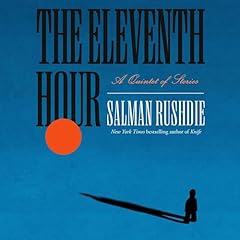
The Language Puzzle
Piecing Together the Six-Million-Year Story of How Words Evolved
No se pudo agregar al carrito
Add to Cart failed.
Error al Agregar a Lista de Deseos.
Error al eliminar de la lista de deseos.
Error al añadir a tu biblioteca
Error al seguir el podcast
Error al dejar de seguir el podcast
 Exclusivo para miembros Prime: ¿Nuevo en Audible? Obtén 2 audiolibros gratis con tu prueba.
Exclusivo para miembros Prime: ¿Nuevo en Audible? Obtén 2 audiolibros gratis con tu prueba.Compra ahora por $28.79
-
Narrado por:
-
Kerry Hutchinson
-
De:
-
Steven Mithen
A top scholar reveals the most complete picture to date of how early human speech led to the languages we use today
The invention of language began with the apelike calls of our earliest ancestors. Today, the world is home to thousands of complex languages. Yet exactly how, when, and why this evolution occurred has been one of the most enduring—and contentiously debated—questions in science.
In The Language Puzzle, renowned archaeologist Steven Mithen puts forward a groundbreaking new account of the origins of language. Scientists have gained new insights into the first humans of 2.8 million years ago, and how numerous species flourished but only one, Homo sapiens, survives today. Drawing from this work and synthesizing research across archaeology, psychology, linguistics, genetics, and more, Mithen details a step-by-step explanation of how our human ancestors transitioned from apelike calls to words, and from words to language as we use it today. He explores how language shaped our cognition and vice versa; how metaphor advanced Homo sapiens’ ability to formulate abstract concepts, develop agriculture, and—ultimately—shape the world. The result is a master narrative that builds bridges between disciplines, stuns with its breadth and depth, and spans millennia of societal development.
Deeply researched and brilliantly told, The Language Puzzle marks a seminal understanding of the evolution of language.
Los oyentes también disfrutaron:




















Las personas que vieron esto también vieron:







New information on our ancestors
Se ha producido un error. Vuelve a intentarlo dentro de unos minutos.
We have evidence from archeology, anthropology, zoology, etc. It's clear human language fits in to the primate family tree as a shared trait. Like the peacock's tail it's a trait that's been heavily selected for and grown to dominate any good description of our species.
This book also talks about a well understood linguistic evolution pipeline where words begin as nouns and end up as part of the structure of speech.
Put these two pieces together and you have a kind of outline for the development of human language, from primate calls that refer to objects to full blown linguistic grammar. But this is very thin soup, and it doesn't feel very revolutionary to put these two facts side by side.
If you want to learn about our closest primate relatives, extant and extinct, read this book. If you've been a keen reader of science news for the past few decades, you can skip this book.
Not as substantive as I hoped
Se ha producido un error. Vuelve a intentarlo dentro de unos minutos.


